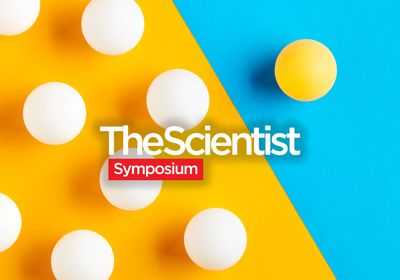ABOVE: When larval wood tiger moths (Arctia plantaginis) were given antibiotics during development, they grew more quickly but suppressed immune genes. © ISTOCK.COM, HENRIK_L
EDITOR’S CHOICE IN IMMUNOLOGY
Antibiotics are administered to a variety of animals, including livestock, fish raised in aquaculture facilities, and insects cultured for research, as these drugs are known to accelerate growth. Yet, the molecular basis for this boost has never been clear. “We’ve been adding antibiotics to animal feed and it’s generating billions and billions of dollars of agricultural gains, and we don’t really know how it works,” says Penn State evolutionary ecologist Andrew Read.
To study whether antibiotic-induced growth comes with unanticipated tradeoffs, biologist Juan Galarza and colleagues at the University of Jyväskylä in Finland injected three rounds of broad-spectrum antibiotics into larval wood tiger moths (Arctia plantaginis), then tracked their growth, bacterial microbiota, and gene expression as they developed. As expected, larvae that received the drugs grew to pupation faster and hosted fewer bacterial taxa, while RNA-seq data revealed 93 genes that were expressed differently compared to non-treated controls. Specifically, as the course of antibiotics progressed, genes related to growth were upregulated, while genes related to immunity were downregulated.
The results indicate a genome-wide tradeoff between growth and immunity in response to antibiotics, Galarza explains. “If we kill the bacteria with antibiotics, the immune system doesn’t have to work so hard . . . [and] the resources can be reallocated to growth.”
The research invites additional explorations, including whether mammals will react to antibiotics the same way as insects—although Galarza notes that innate immunity is conserved between the two groups—and how animals downregulating their immune response might respond to subsequent pathogen exposure. “The individual animal is adjusting its immune response to the diversity and number of bacteria it has,” says Read, who was not involved in the research. “The implication would be that you downregulate, but if you’ve got a challenge, you could upregulate again.”
J.A. Galarza et al., “Antibiotics accelerate growth at the expense of immunity,” Proc R Soc B, 288:20211819, 2021.








